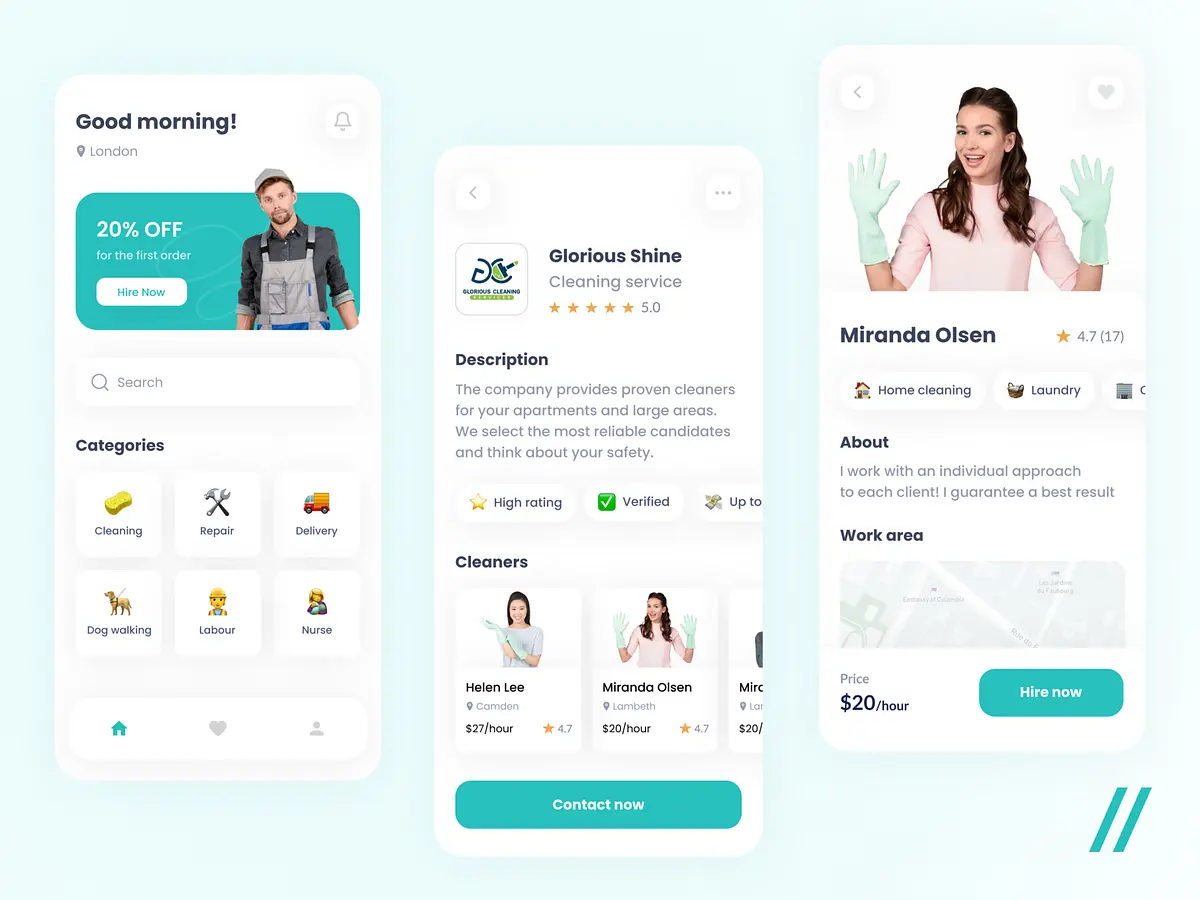Consulting in Healthcare – Unveiling its Significance and Transformative Impact


In today’s rapidly evolving business landscape, companies across various industries increasingly rely on consulting services to face complex market dynamics. The medical field is no exception, with unique challenges and intricacies. As a result, the demand for healthcare consulting services has emerged, playing a pivotal role in transforming medical practices. In this blog post, we will discuss the definition, classification, and trends of consulting in healthcare in today’s market.
With its history tracing back to the early 20th century, consulting in the healthcare industry has become an indispensable resource for any business in the growth process. Healthcare consulting is a specialized service that provides expert advice, strategic guidance, and tailored solutions to address the unique challenges medical institutions face. It is pivotal in helping organizations navigate the intricacies of cost-effective care, evolving regulations, and technology integration.

Healcare Consulting
Healthcare consultants collaborate closely with their clients, conducting in-depth analyses to identify specific needs and areas for improvement. Through their extensive expertise, industry insights, and evidence-based recommendations, experts assist organizations in enhancing operational efficiency, elevating care quality, and driving overall performance. They bring fresh perspectives, innovative strategies, and best practices from similar organizations, enabling health providers to optimize processes, adapt to changing dynamics, and deliver high-quality care that aligns with the evolving needs of patients and the industry.
By leveraging the expertise of this consulting service, companies can achieve their goals, improve patient outcomes, and contribute to the advancement of the health industry.
Please feel free to contact us for a free consultation: Healthcare Software Development Services
Let’s explore the different areas where consultants bring their expertise to drive positive changes and improve the overall performance of healthcare organizations.
| Medical Consulting | Provide top-notch solutions and recommendations in areas such as medical data analysis, patient records management, improving patient care quality, pharmaceutical research and development, and other related domains. |
| Technology Consulting | This solution focuses on ensuring that healthcare organizations leverage technology effectively to enhance patient care and operational efficiency. Medical centers gain assistance from technology experts in optimizing their technology infrastructure. The service includes selecting and implementing electronic health record (EHR) systems, telehealth platforms, data analytics tools, and cybersecurity measures. |
| Legal and Regulatory consulting | Legal and regulatory consultants assist institutions in navigating complex regulations and ensuring compliance. They guide privacy and security regulations, compliance audits, and risk management. Their expertise helps organizations mitigate legal risks and maintain regulatory compliance. |
| Strategy Consulting | This type of consulting in healthcare encompasses expert guidance on long-term goals, strategic planning, and market dynamics. Consultants in this field offer insights into market analysis, growth opportunities, mergers and acquisitions, and strategic decision-making. Their expertise helps organizations shape their future direction. |
| HR and Operations Consulting | Streamline processes and enhance workforce management with consultants specializing in HR and operations. There are many improvements for talent acquisition, workflow optimization, and supply chain management. Hospital systems benefit from their expertise in improving efficiency, reducing costs, and delivering quality care. |
| Marketing Consulting | Marketing strategies are an indispensable part of promoting healthcare organizations and attracting patients. Conduct market research, analyze consumer trends, and create marketing campaigns to help enhance brand reputation, drive patient engagement, and achieve business growth. |
| Financial Management | Achieve financial stability and long-term sustainability through economic analysis, revenue cycle management, and cost optimization. These solutions assist businesses in managing finances, maximizing revenue, and adapting to value-based care models. |
Healthcare-related articles at TECHVIFY:

Healthcare Consulting
Healthcare consulting trends are constantly evolving to meet the dynamic needs of the health services industry. Now, we will discover some of the latest trends shaping the future of consulting in healthcare.
|
Digital transformation |
The digital transformation trend has had a profound impact on consulting in healthcare. Health facilities are embracing telehealth, electronic health records (EHR), artificial intelligence (AI), and data analytics to improve efficiency, patient outcomes, and decision-making. Consultants are crucial in guiding organizations through the complexities of digital transformation, helping them select and implement the right technologies, optimize workflows, and ensure data security and privacy. |
|
Value-based care |
The move towards value-based care models, which link payment to patient results and the standard of care, highlights the importance of medical advisory knowledge. Transitioning from fee-for-service models to value-based care, optimizing care delivery, implementing performance metrics, and aligning financial incentives with desired outcomes are healthcare consulting trends in the future. |
|
Patient-centricity |
Understand patient needs, preferences, and expectations. Follow that, design patient-centered care models, improve patient engagement and experience, and incorporate patient feedback into decision-making processes. |
|
Innovation and collaboration |
In the face of rapid technological advancements and increasing competition, innovation and collaboration have become key drivers for success in medical assistance. This trend plays a vital role in fostering a culture of innovation within organizations, identifying partnership opportunities, exploring new business models, and facilitating collaboration between healthcare providers, technology companies, and other stakeholders. |
|
Healthcare Workforce Transformation |
The need to develop new skills and capabilities among healthcare workers to meet the demands of a changing industry is a significant trend in medical business consulting. This consulting service includes assessing their workforce needs, identifying skill gaps, and developing training and development programs to ensure that medical professionals have the necessary skills to thrive in the evolving health industry landscape. |
| Social responsibility | Medical institutions must be responsible for their impact on social and environmental welfare in their communities. This trend includes addressing health equity, diversity, climate change, ethical sourcing, waste management, and philanthropy. Medical strategists assist organizations in defining sustainability goals, assessing impact, implementing best practices, and enhancing reputation. |
In a rapidly changing healthcare landscape, consulting in the healthcare industry is more vital than ever. Advisors bring expertise, innovative strategies, and industry insights to help medical centers overcome challenges, optimize operations, and improve patient outcomes. From strategic planning and technology implementation to process optimization, regulatory compliance, and financial management, they are the trusted partners that drive positive change and shape the future of healthcare. By harnessing the power of medical advisory services, organizations can navigate complexities, embrace innovation, and deliver exceptional care that meets the evolving needs of patients and industry. With healthcare consulting trends as the guiding force, the industry’s possibilities for transformation and success are endless.


Table of ContentsI. What is healthcare consulting?II. Types of Healthcare ConsultingIII. Healthcare consulting trendsConclusion Technological advancements are paving new paths for companies across different sectors, and the logistics industry is no exception. According to a survey by Gartner, 87% of supply chain professionals plan to invest in enhancing the resilience of their platforms. Logistics encompasses a broad and complex array of processes that demand the utmost precision and continuous optimization. Companies can automate and streamline these processes through software product development, significantly boosting efficiency. In this article, we will delve into the realm of logistics software development, exploring its key…
26 July, 2024

Table of ContentsI. What is healthcare consulting?II. Types of Healthcare ConsultingIII. Healthcare consulting trendsConclusion The technology sector is advancing at an unprecedented pace, and the HR landscape is evolving right alongside it. To attract top talent, HR professionals and organizations need to stay ahead of emerging technology hiring trends. This year, we are witnessing significant shifts in hiring practices that will redefine our understanding of the future workforce. According to a Microsoft study, the number of technology jobs worldwide is expected to skyrocket from 41 million in 2020 to an incredible 190 million by 2025. This highlights the tremendous growth…
25 July, 2024

Table of ContentsI. What is healthcare consulting?II. Types of Healthcare ConsultingIII. Healthcare consulting trendsConclusion Customized software plays a major role in managing various tasks within the telecom industry. It is essential for allocating numbers to subscribers and managing networks through optimized and AI-enabled routing protocols. Additionally, it aids in detecting fraud with intelligent telecom software development solutions and maintaining detailed subscriber profiles, including comprehensive call recording reports. I. A Quick Look into the Telecommunication Industry The telecommunications industry enables the global exchange of information in the 21st century. Key players in this sector include cable and satellite companies, wireless operators,…
24 July, 2024


Thank you for your interest in TECHVIFY Software.
Speed-up your projects with high skilled software engineers and developers.
By clicking the Submit button, I confirm that I have read and agree to our Privacy Policy